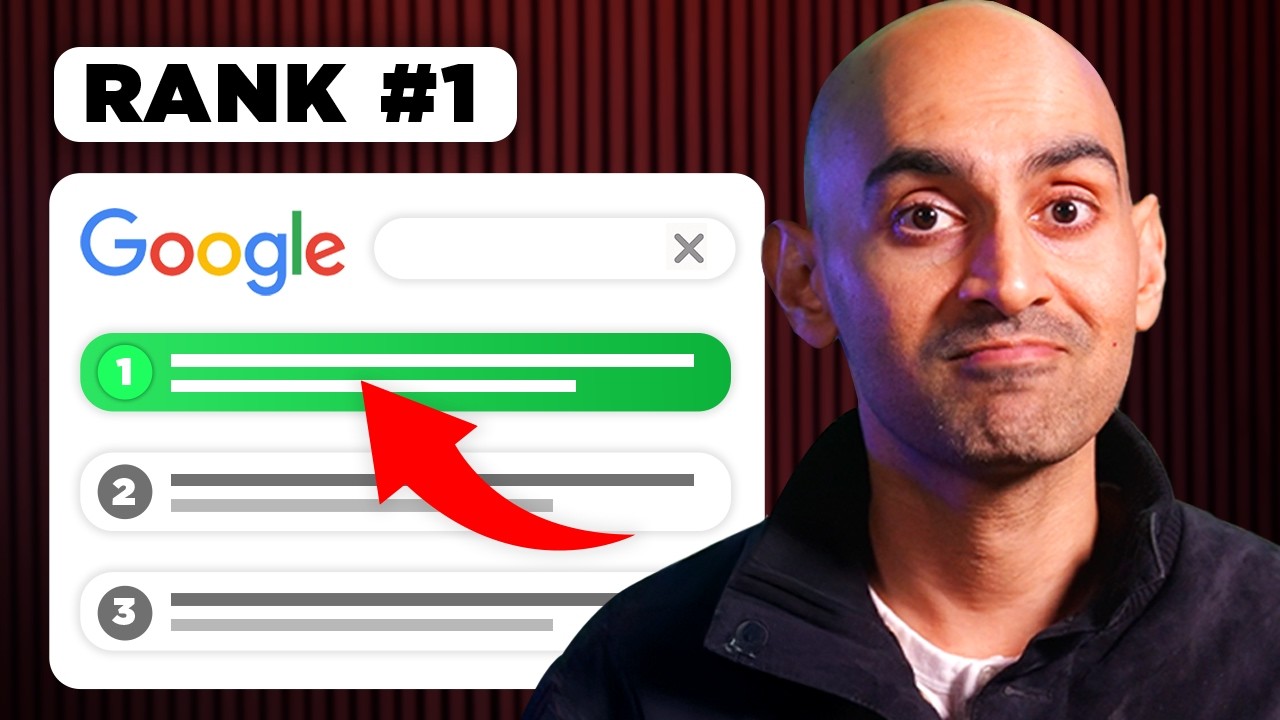Contents
With an ever-evolving marketplace, understanding effective marketing and sales strategies is imperative for your business’s success. This guide will provide you with actionable insights and techniques designed to enhance your outreach and boost your sales performance. By focusing on both marketing principles and sales tactics, you can create a cohesive approach that resonates with your target audience and drives engagement. Whether you’re a seasoned professional or just starting out, enhancing these strategies will empower you to make informed decisions that positively impact your bottom line.
Key Takeaways:
- Effective marketing strategies should focus on understanding the target audience and tailoring messages to meet their specific needs and preferences.
- Sales strategies benefit from building strong relationships and trust with customers, as personalized interactions can lead to higher conversion rates.
- Integrating both marketing and sales efforts ensures a cohesive approach that can significantly enhance customer engagement and overall business growth.
Understanding the Market
The success of your marketing and sales strategies greatly depends on your understanding of the market. By comprehending market trends, customer needs, and competitive dynamics, you can tailor your approach to better connect with consumers. This foundational step helps ensure that your strategies are not only relevant but also resonate with your target audience, leading to increased engagement and sales.
Market Research Techniques
Behind every effective marketing strategy is thorough market research, which allows you to gather valuable insights about your industry. Employing various techniques such as surveys, focus groups, and competitor analysis ensures that you understand consumer behavior and preferences. By utilizing these methods, you can make informed decisions that enhance your marketing efforts and overall business success.
Identifying Target Audiences
The key to successful marketing lies in identifying your target audiences. Understanding who they are, what they need, and how they behave allows you to create tailored messages that resonate with them. This knowledge not only helps in your marketing efforts but also ensures that your products or services meet the specific demands of your audience, fostering loyalty and long-term relationships.
To effectively identify your target audiences, start by segmenting the market based on demographics, psychographics, and behavioral traits. This allows you to create buyer personas that represent the ideal customers for your business. Analyze your existing customer data, conduct surveys, and utilize social media insights to gather information. By knowing exactly who your audience is, you can craft messages and campaigns that engage them more personally, driving better results for your efforts.
Developing Effective Marketing Strategies
You need to understand that developing effective marketing strategies requires a deep understanding of your audience and their needs. Identify your target market, set clear goals, and measure your progress to create a tailored approach that resonates. To learn more about establishing a solid framework, check out this insightful article on Sales and Marketing Strategy for Professional Services.
Content Marketing
Marketing through valuable and relevant content is fundamental to attracting and retaining customers. Develop high-quality blogs, videos, and infographics that establish your expertise and engage your audience. Doing so not only builds trust but also improves your visibility across various platforms.
Social Media Engagement
At the heart of modern marketing is social media engagement. Leveraging platforms like Facebook, Instagram, and LinkedIn enables you to connect with your audience in real-time, fostering relationships and encouraging interaction. Create engaging posts, respond to comments, and share user-generated content to enhance your brand’s presence.
Further, actively engaging with users on social media helps you gather valuable insights into their preferences and pain points, which allows you to refine your marketing strategies. Host live Q&As, polls, and contests to create buzz around your brand, ultimately leading to increased loyalty and trust among your audience.
Creating Compelling Sales Strategies
Keep your sales strategies dynamic and adaptable to meet evolving customer needs. Focus on understanding your target audience and delivering tailored solutions. Utilize data-driven insights to refine your approach, ensuring your offers resonate well. The integration of technology and personal touches can also enhance engagement and drive conversions. Your goal should be to create a seamless customer journey that fosters loyalty and repeat business.
Building Relationships with Customers
After identifying your prospects, the next step is to build lasting relationships. Invest time in engaging with customers through personalized communication, providing valuable content, and soliciting feedback. Establishing a rapport helps you gain trust, making your customers more likely to choose your products or services over competitors’. Note, a loyal customer is not just a repeat buyer but an advocate for your brand.
Sales Funnel Optimization
The optimization of your sales funnel is imperative for maximizing conversions at every stage. It involves analyzing customer behavior and refining your strategies to guide prospects seamlessly from awareness to purchase. By addressing potential bottlenecks and improving user experience, you can effectively nurture leads and increase sales.
Due to the competitive landscape, optimizing your sales funnel is more important than ever. Regularly assess each stage of the funnel, from lead generation to post-sale follow-up. Make use of analytics tools to track conversion rates and identify points needing improvement. This proactive approach allows you to implement data-backed strategies, enhancing customer engagement and boosting revenue through streamlined processes and focused marketing efforts.
Leveraging Digital Tools and Technologies
Unlike traditional marketing methods, leveraging digital tools and technologies allows you to reach a wider audience with precision. With the ability to target specific demographics and interests, you can customize your campaigns for better engagement. Embracing digital channels not only enhances your marketing efficiency but also gives you valuable insights into customer behavior, enabling you to optimize your strategies. By integrating various digital solutions, you can drive consistent growth and improve your overall marketing effectiveness.
Automation in Marketing
About automation in marketing, it simplifies repetitive tasks, allowing you to focus on creative strategies and nurture deeper customer relationships. By implementing automation tools, you can schedule campaigns, segment your audience, and personalize content at scale. This approach ensures consistency and timely communication, ultimately enhancing your customer experience while freeing up time for your team to innovate and strategize.
Analytics and Performance Tracking
Above all, analytics and performance tracking provide you with important insights into your marketing efforts. By measuring key performance indicators (KPIs), you can determine which strategies yield the best results, enabling you to make data-driven decisions that enhance your effectiveness. This informed approach allows you to continually refine your campaigns and allocate resources more efficiently.
Further, utilizing analytics tools empowers you to visualize trends and understand customer behavior better. By monitoring engagement rates, conversion metrics, and ROI, you gain a comprehensive overview of your marketing landscape. This deeper understanding not only highlights areas for improvement but also guides your future initiatives. With accurate tracking in place, you can pivot your strategies and allocate your resources effectively, maximizing your marketing impact.
Integrating Marketing and Sales Efforts
To effectively boost your business outcomes, it’s vital to align your marketing and sales strategies. By doing so, you can create a unified approach that not only enhances communication but also improves customer experience. Consider implementing 4 Marketing Strategies That Will Help You Increase Sales to seamlessly bridge the gap between these two functions.
Alignment Strategies
Between marketing and sales teams, establishing alignment strategies can significantly enhance both efficiency and outcomes. You should aim for regular communication and shared goals that promote collaboration, ensuring that everyone is working towards the same objectives.
Holistic Campaign Development
An effective way to unify your marketing and sales efforts is through holistic campaign development. By creating campaigns that incorporate input from both teams, you ensure your messaging is consistent, resonating with your target audience across multiple touchpoints.
It is vital to involve both marketing and sales in the planning process to create comprehensive campaigns that address customer pain points and motivations. In this collaborative environment, your teams can share insights and data, leading to a more coherent message. This alignment not only strengthens your brand’s voice but also maximizes the effectiveness of your outreach, ultimately driving higher conversion rates and customer loyalty.
Measuring Success and ROI
Your ability to measure success and return on investment (ROI) is fundamental in understanding the effectiveness of your marketing and sales strategies. By tracking various metrics, you can pinpoint what works, optimize your initiatives, and ensure your resources are allocated efficiently. These insights empower you to refine your approaches and maximize your results, ultimately driving growth for your business.
Key Performance Indicators (KPIs)
On your journey to gauge success, establishing key performance indicators (KPIs) is vital. KPIs provide quantifiable metrics that align with your goals, whether it’s lead generation, conversion rates, or customer retention. By consistently monitoring these indicators, you gain valuable insights into your performance and identify areas for improvement.
Adapting Strategies Based on Data
Among the most effective ways to enhance your marketing and sales strategies is through continuous adaptation based on data analysis. This ongoing process ensures that you remain agile and responsive to shifting market conditions, customer preferences, and competitor actions.
Due to the rapid changes in consumer behavior and the competitive landscape, adapting your strategies based on data becomes crucial. By leveraging advanced analytics and tools, you can assess the performance of your campaigns in real time and identify patterns or trends. This allows you to make informed decisions, pivot your approach where necessary, and optimize your efforts for better outcomes. Utilizing data-driven insights not only enhances your strategies but also reinforces your commitment to achieving higher levels of success and ROI.
Conclusion
Summing up, effective marketing and sales strategies are imperative for driving your business forward and achieving your goals. By understanding your target audience and leveraging the right channels, you can create a strong brand presence that resonates with customers. It’s important to regularly assess and refine your approach based on performance metrics, ensuring you remain adaptable to changing market conditions. Utilizing a combination of digital marketing, relationship building, and innovative sales techniques will enable you to stand out in a competitive landscape, ultimately boosting your bottom line.








